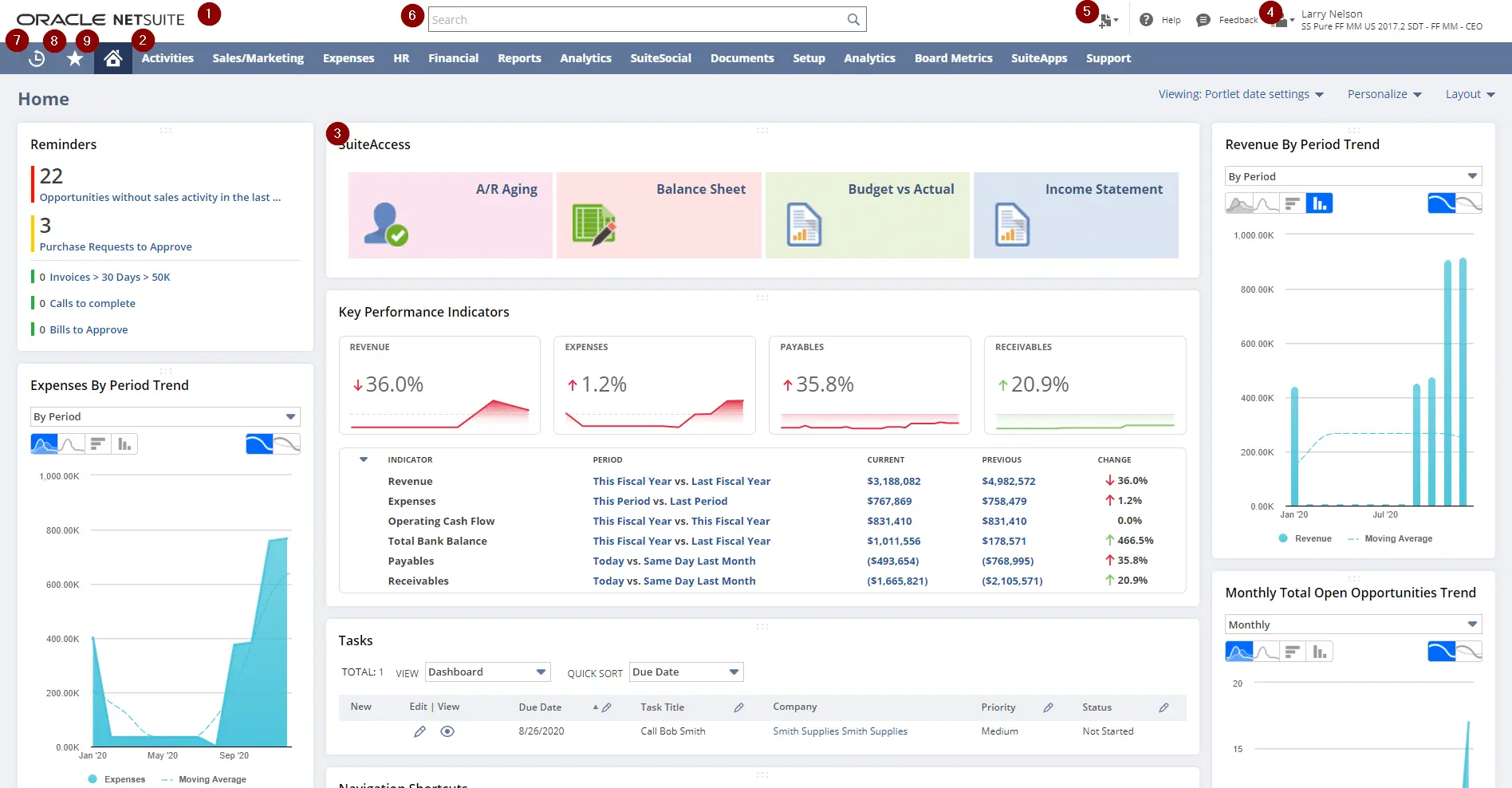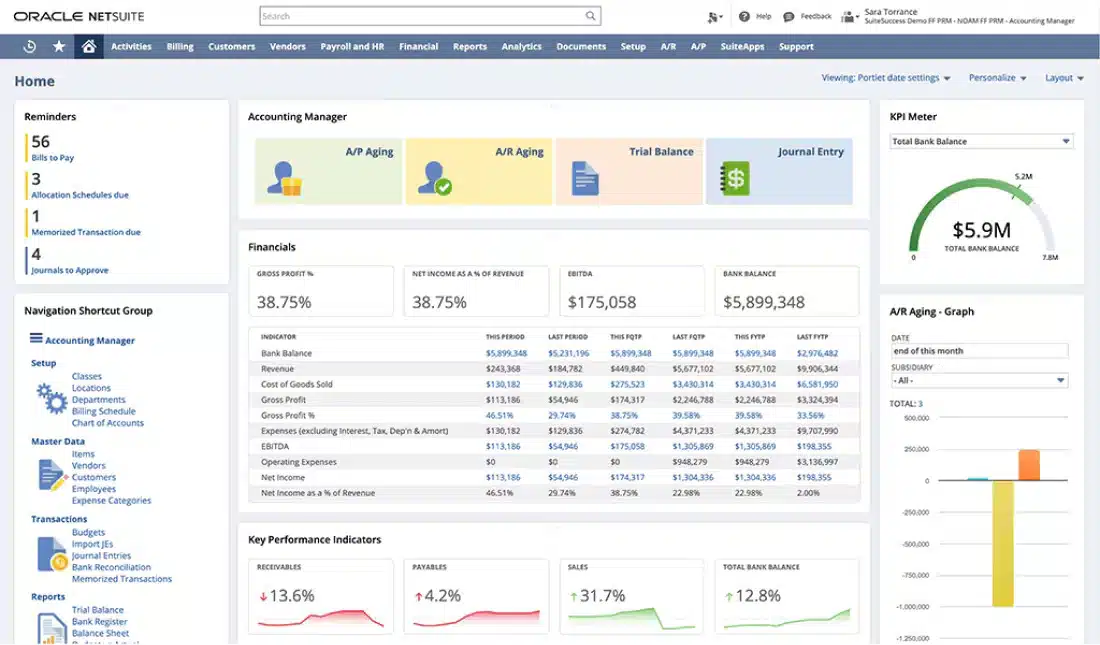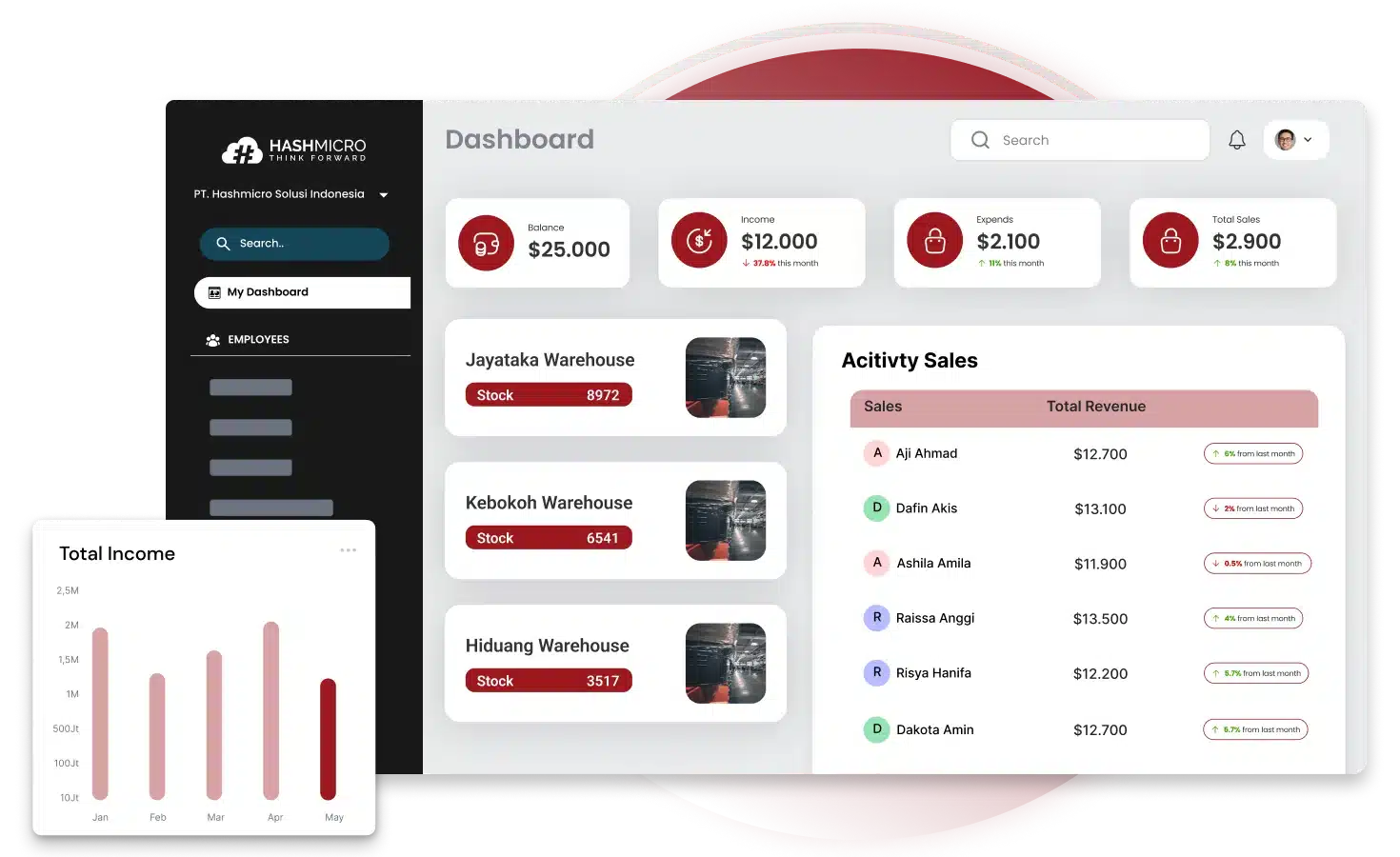In today’s fast-paced business world, having the right tools is essential for staying competitive, and Enterprise Resource Planning (ERP) software plays a crucial role. NetSuite ERP has gained significant popularity among the many options available for its comprehensive features and flexibility.
Considering an ERP system can sometimes feel overwhelming, especially with so many choices on the market. It’s natural to wonder if the investment will pay off or if your current system meets your needs. In this context, exploring NetSuite ERP’s strengths and weaknesses is a smart move, allowing you to weigh its benefits against any potential drawbacks.
This article will explore the features of NetSuite ERP, emphasizing its benefits and drawbacks. Sa konklusyon, mas mauunawaan mo kung ang NetSuite ERP ang tamang pagpipilian para sa iyo o kung ang isa pang solusyon ay maaaring mas angkop.
Table of Contents
Key Takeaways
|

What is Netsuite ERP?
NetSuite ERP is a cloud-based enterprise resource planning solution designed to help businesses manage their core processes. It integrates financial management, inventory control, and customer relationship management into a single platform. This comprehensive system enhances efficiency and visibility across all departments.
ERP NetSuite provides real-time insights, enabling companies to make informed decisions quickly. With its customizable features, businesses can tailor the software to meet their needs. This adaptability makes NetSuite a popular choice for organizations of all sizes looking to streamline operations.
So, what is NetSuite ERP? It’s more than just software; it’s a powerful tool transforming businesses’ operations. By leveraging Oracle NetSuite’s capabilities, companies can achieve greater productivity and growth. Sa pangkalahatan, ang NetSuite software ay mahalaga para sa modernong pamamahala ng negosyo.
Netsuite ERP Advantages
NetSuite ERP is a comprehensive software solution designed to help businesses streamline their operations and enhance profitability. Designed with modern enterprises in mind, this robust ERP system provides various features that make it an ideal choice for businesses of all sizes. Here are some key benefits of NetSuite ERP:
1. Automate financial process
NetSuite software offers an integrated financial management system that automates critical financial processes. This includes managing accounts payable, accounts receivable, general ledger, and fixed assets. By automating these tasks, businesses can significantly reduce the risk of errors, enhance accuracy, and improve overall efficiency, making it a vital component of NetSuite ERP.
2. Gain inventory report
One of NetSuite’s standout features is its real-time inventory management system. This tool provides businesses with visibility into inventory levels, movements, and costs.
Accurate inventory reports enable distribution companies to make informed decisions regarding inventory management, purchasing, and order fulfillment. They address the question of what NetSuite ERP is in terms of its practical applications.
3. Supply chain optimization
The supply chain management module in Oracle NetSuite allows businesses to optimize their supply chain operations, from procurement to order fulfillment. This includes managing vendor relationships, maintaining optimal inventory levels, processing purchase orders, and overseeing shipping and receiving logistics.
4. Organized order management
NetSuite ERP includes an integrated order management system streamlining the entire order processing lifecycle. From order entry to fulfillment, businesses can efficiently manage customer orders, sales orders, purchase orders, and returns, ensuring a smooth operation that enhances customer satisfaction.
5. Boost warehouse efficiency
The capabilities of NetSuite software extend to warehouse management, helping businesses improve operational efficiency. Organizations can enhance warehouse operations by integrating various processes and providing real-time data, optimizing order fulfillment and inventory accuracy.
Looking to elevate your business operations with an ERP software? Why not explore HashMicro for a customized experience that fits your needs perfectly? Let’s unlock your company’s potential together!
Netsuite ERP Weakness
While NetSuite ERP offers numerous advantages for businesses, it’s crucial to be aware of its potential drawbacks before implementation. Here are some of the key disadvantages of NetSuite ERP:
1. Confusing help system
NetSuite ERP’s help system aims to assist users in navigating the software, but many find it confusing. The structure is complex, and some explanations are unclear, making it hard for users to find the specific information they need quickly.
This confusion can lead to frustration, ultimately decreasing productivity, as employees waste time sifting through various help topics without clear guidance. A well-functioning help system is essential, especially for companies adopting ERP software Philippines, where adequate support can significantly enhance user satisfaction and efficiency.
2. Difficulty configuring system
Configuring NetSuite ERP to meet an organization’s diverse needs can be challenging. The process involves setting up access permissions, customizing dashboards, and tailoring workflows for various roles. A deep understanding of the software’s capabilities and the organization’s operational requirements is crucial.
If configurations are mismanaged, users may either lack the necessary permissions to perform their tasks or be overwhelmed with irrelevant information, complicating their workflow. This issue is particularly relevant for businesses in the Philippines, where aligning the ERP system with local operational practices can be vital for success.
3. Broad but complex feature set
NetSuite ERP boasts an extensive range of features, which is undoubtedly a strength. However, this breadth can introduce significant complexity, particularly for new users. Users may feel overwhelmed with financial management, inventory control, and CRM functionalities. Mastering these features requires a considerable time investment and often formal training.
Additionally, integrating multiple functionalities can lead to interface clutter and navigation challenges, making even simple tasks more difficult. Businesses in the Philippines must ensure they allocate sufficient resources for training and user support to maximize the potential of their ERP system.
Also read: Infor ERP Review 2024: Features, Pros, Cons & Alternatives
Streamline Your Operations with HashMicro ERP: A Great Alternative
While NetSuite and several ERP, such as Epicor ERP are two popular choices for businesses seeking comprehensive ERP solutions, HashMicro ERP emerges as a more customizable and cost-effective option for companies in need of flexible pricing and specific industry needs.
HashMicro is a leading alternative to NetSuite, offering a comprehensive ERP system that helps businesses streamline operations and improve profitability. Are you looking for a solution to effectively manage your financials, inventory, supply chain, and customer relationships in one platform? HashMicro ERP provides robust features that address these needs seamlessly.
HashMicro stands out due to its exceptional customization capabilities, enabling businesses to adapt the software to their specific workflows. It offers flexible pricing plans that align with various budgets and can grow with the organization’s needs. With various competitive options, businesses can select a plan that fits their financial situation and easily adjust it as their requirements evolve.
Additionally, HashMicro provides exceptional support services to ensure you get the most out of your ERP system. Would you like to learn more about how our knowledgeable support team can help you achieve your business goals and optimize your software usage? Our dedicated team is here to guide you and maximize the value of your investment.
Key Features of Hash Core ERP
- Built-In Business Intelligence (BI)
This feature collects and analyzes operational data, providing businesses with pivot tables and KPI scorecards. It enables tailored reporting that aligns with specific company needs, ensuring data accuracy and comprehensiveness. - WhatsApp Integration
By integrating WhatsApp, the software enhances communication with both employees and customers. This allows for instant messaging and notifications, significantly improving responsiveness and engagement. - Sheet Management
This functionality centralizes access to vital business data in spreadsheet format, including financial, sales, and inventory information. It streamlines data organization, allowing for quick retrieval and facilitating informed decision-making. - Access-Level Control
This feature regulates employee access to data and system functions based on their roles. It effectively prevents unauthorized access and data breaches, making it easier for managers to monitor user activities. - AI-Generated Reports and Explanations
This feature utilizes artificial intelligence to automate report generation and provide actionable insights. It simplifies understanding complex data while identifying anomalies and suspicious costs. - Restricted User Access
User access is limited to those connected to the office Wi-Fi, enhancing data security. This restriction minimizes the risk of unauthorized access and potential data theft outside the workplace. - Mobile Application
The mobile app, available on iOS and Google Play Store, allows users to manage and monitor business activities from anywhere. This feature supports remote work by providing real-time access to critical data, enhancing productivity. - Flexible Hosting Methods
Businesses can host the ERP system on cloud servers or their internal servers. This flexibility allows companies to scale operations quickly while maintaining data security and system configuration control. - Multi-Language Support
The software supports multiple languages, including Indonesian, English, Tagalog, and Mandarin. This feature ensures international teams can use the software comfortably, improving communication and collaboration across diverse groups.

Conclusion
In today’s competitive business landscape, implementing an effective Enterprise Resource Planning (ERP) system is crucial, and NetSuite ERP stands out for its comprehensive features and flexibility. Designed as a cloud-based solution, it integrates financial management, inventory control, and customer relationship management. With real-time insights and customizable options, NetSuite allows businesses to streamline operations, making it a popular choice for companies seeking to improve productivity and growth.
However, potential users should also consider the drawbacks associated with NetSuite ERP. Challenges such as a confusing help system, difficulties in configuration, and a complex feature set can hinder user experience and productivity. Organizations, particularly in the Philippines, must be prepared to invest in training and support to navigate these issues effectively. By weighing the benefits against the potential drawbacks, businesses can make informed decisions about whether NetSuite ERP fits their operational needs.
So, what are you waiting for? If you’re ready to enhance your business operations and streamline your processes, consider HashMicro’s ERP system. Huwag palampasin—i-unlock ang potensyal ng iyong kumpanya ngayon gamit ang isang libreng demo!

FAQ
-
What is ERP?
ERP (Enterprise Resource Planning) software helps organizations manage and integrate their core business processes, including finance, HR, supply chain, and manufacturing.
-
Why is ERP important?
ERP is important because it streamlines operations, improves efficiency, enhances data accuracy, and facilitates better decision-making by providing a unified business view.
-
Are SAP and ERP the same?
No, SAP is a specific ERP software provider. While all SAP systems are ERP solutions, not all ERP systems are SAP.



































